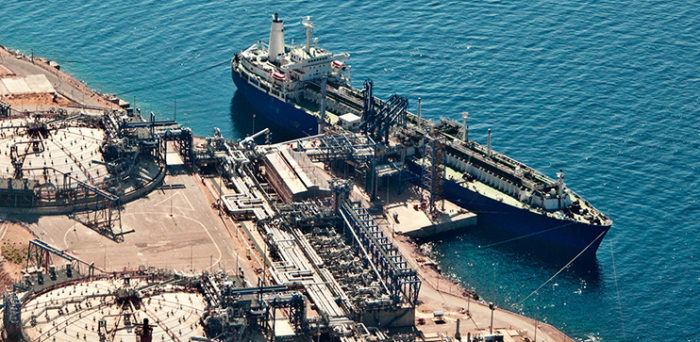The Haldia Dock Complex under India’s Kolkata Port Trust has recently earmarked about 10 acres of land for a period of 30 years for setting up of LNG storage facilities, with permission to lay pipelines and install unloading arms through tender cum auction. The project will be undertaken on land lease model by granting lease of land by middle of December, 2016. LNG facilities are expected to be developed within 24 months from date of allotment of land.
This is an important development in context of the recent efforts of the Ministry of Shipping to reduce logistics cost and achieve the COP21 targets on cutting down pollution by introducing the use of LNG as fuel for barges. Use of LNG is expected to save around 20 percent on fuel. Carbon Dioxide emissions are likely to get reduced by 20-25 percent and nitrogen/sulphur oxide emissions by 90 per cent. The government is therefore taking measures to facilitate the movement of LNG and its storage at places situated along the inland waterways. Only a few advanced countries are using LNG powered barges at present. Therefore in that sense, the development at Haldia Dock Complex can be seen as a very positive one.
The efforts to introduce LNG as barge fuel is part of the overall efforts to promote transport on inland waterways and coastal shipping. Inland Water Transport (IWT) is a cost effective and environment friendly system and a lot of importance is being accorded to it since the last two years. Work is already on for construction of terminals and other activities to facilitate navigation on river Ganga under the Jal Marg Vikas.
The Ministry of Shipping has been regularly holding discussions with Petronet LNG Ltd. (PLL) and Inland Waterways Authority of India (IWAI). PLL is in the process of preparing a Detailed Feasibility Report for setting up LNG facilities at Haldia, Sahibganj, Patna and Ghazipur on NW-I (Ganga) as per an MoU signed by them with IWAI during the Maritime India Summit in Mumbai in April this year. In the last follow up meeting earlier this month, IWAI was requested to share the details of projections on the cargo and pattern of traffic on NW-1 as per a study conducted for the Jal Marg Vikas Project so as to enable PLL to estimate the demand for LNG. As a long term market for transportation of coal on LNG barges from the Eastern Coal Fields to various thermal power houses on Ganga, IWAI agreed to share with PLL the information they had gathered. The construction of LNG barges at Indian shipyards would be entitled to the 20 per cent subsidy through the ship building subsidy scheme whose guidelines have already been released by the Shipping Ministry.
PLL was also requested to list out in detail the infrastructure support needed for moving to LNG as fuel for barges and specify the milestone for achieving the activities required to be accomplished. The LNG storage hubs may be built along the river Ganga which would facilitate potential gas consumers in the hinterland also as LNG has the potential to replace LPG, Naphtha, and HFO fuel. It would serve a variety of industries such as metal, ceramic and glass, food processing, refractory’s etc. as well as heavy mining machineries. LNG could even fuel the road transport sector.
Goa and Maharashtra also have a tremendous potential for introduction of LNG barges on their waterways. PLL was requested to explore the introduction of LNG barges for that region also. Similarly the option of LNG based vessels on NH-5 was also discussed in the meeting this month.
Source: Ministry of Shipping



























































